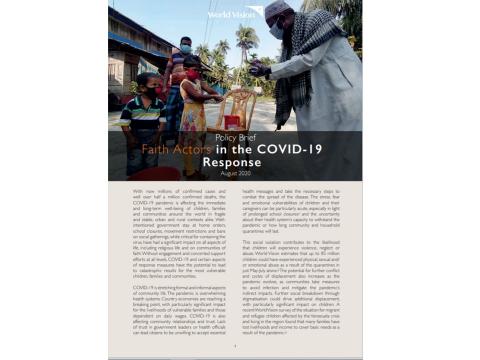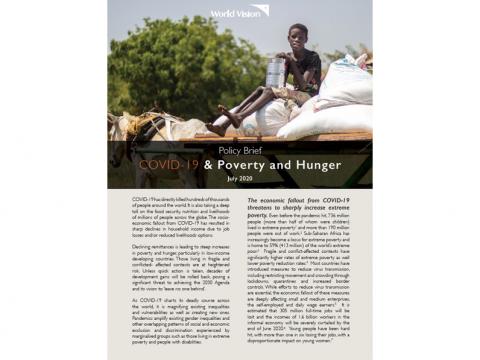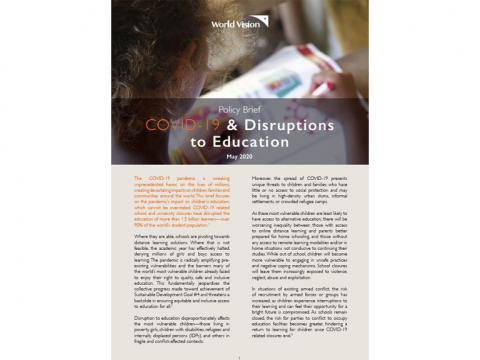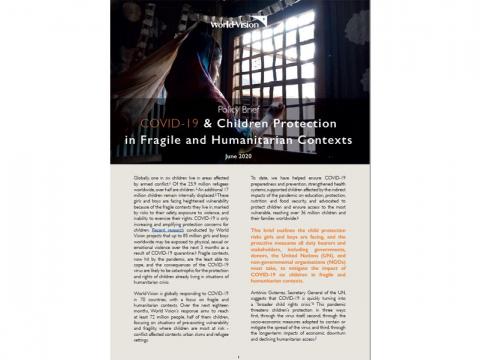Policy Brief: Addressing COVID-19 in fragile cities in the Northern Triangle of Central America
Download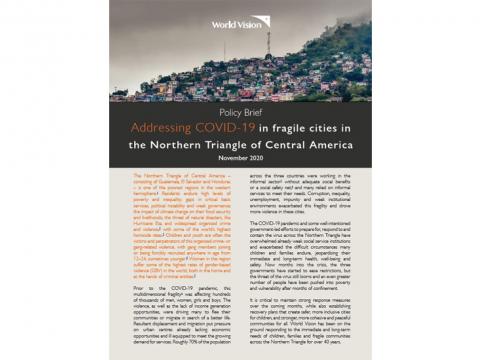
The Northern Triangle of Central America – consisting of Guatemala, El Salvador and Honduras – is one of the poorest regions in the western hemisphere. Residents endure high levels of poverty and inequality; gaps in critical basic services, political instability and weak governance; the impact of climate change on their food security and livelihoods; the threat of natural disasters, like Hurricane Eta; and widespread organised crime and violence, with some of the world’s highest homicide rates.
Prior to the COVID-19 pandemic, this multidimensional fragility was affecting hundreds of thousands of men, women, girls and boys. The violence, as well as the lack of income generation opportunities, were driving many to flee their communities or migrate in search of a better life.
The COVID-19 pandemic and some well-intentioned government-led efforts to prepare for, respond to and contain the virus across the Northern Triangle have overwhelmed already weak social service institutions and exacerbated the difficult circumstances many children and families endure, jeopardising their immediate and long-term health, well-being and safety. Now months into the crisis, governments have started to ease restrictions, but the threat of the virus still looms and an even greater number of people have been pushed into poverty and vulnerability after months of confinement.
This policy brief looks at the evolving context in cities in the Northern Triangle of Central America and how World Vision is responding to urban fragility and COVID-19 in these cities and, based on this experience, provides recommendations for what the three governments, the UN, NGOs and the private sector can do to strengthen response efforts, while also establishing recovery plans that create safer, more inclusive cities for children, and stronger, more cohesive and peaceful communities for all.
